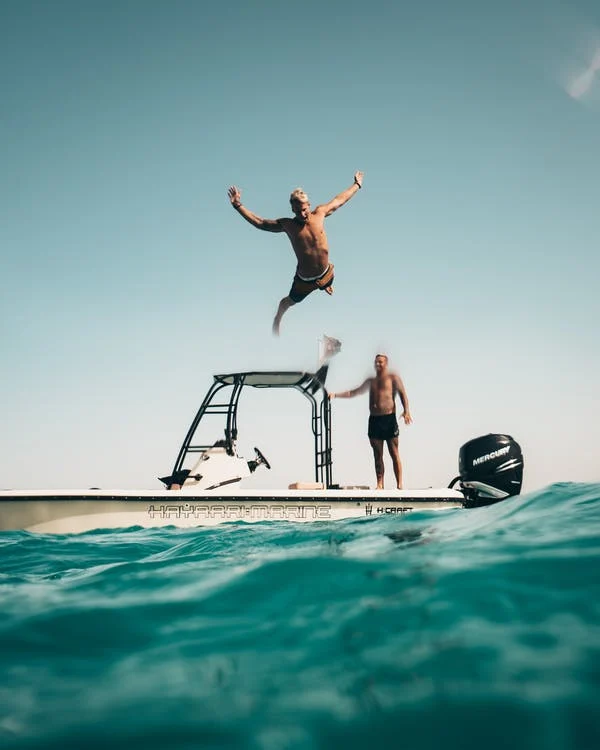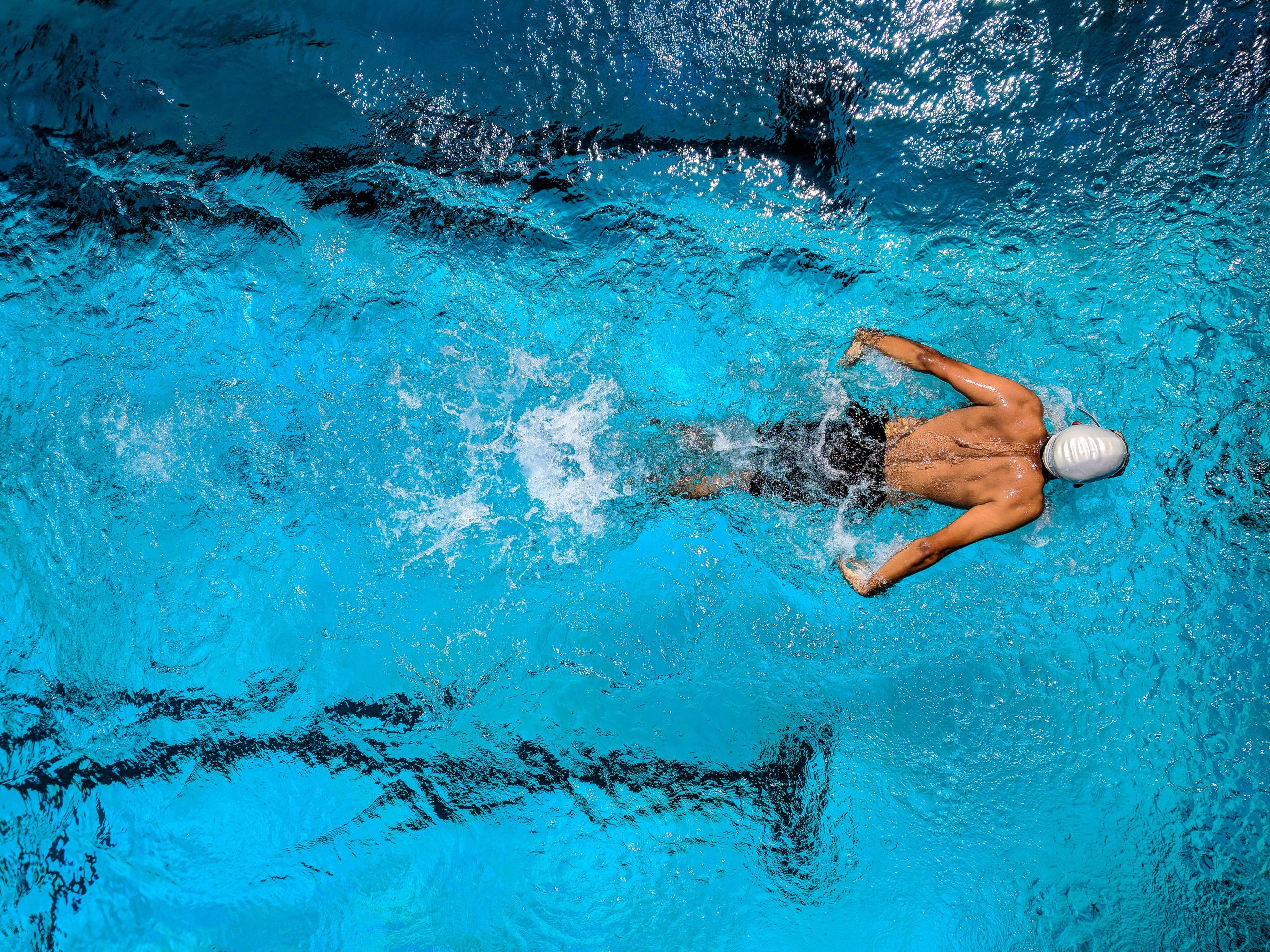Swimming pools are pretty much a universal place for fun, leisure and relaxation. Whether you own your private pool or frequent public swimming pools, there are lots of opportunities to enjoy the water in all its forms.
And whether you prefer to swim, dive or just float around on your back and soak it up, one thing is true with any kind of pool: you need to follow the rules. In this article, i will name something that forbidden in most swimming pool.
Fortunately, most swimming pools do have rules that are there for your safety. While breaking some of these rules may seem like no big deal at first glance, they’re there for a reason, and if you ever find yourself working at a local pool as an employee or lifeguard (yes it could happen), knowing the rules can be a great help. After all, not many people like working in places filled with chlorine and people who break the rules.
Following are some things which are forbidden in most swimming pools.
Things That are Forbidden in Most Swimming Pools
1. Don’t dive from the diving board
Diving boards are designed for the specific purpose of diving. That is, jumping in at a high point and landing in the water below. Unfortunately for the boards, it’s also a great way to crack or break them. This can pose not only a danger to the board itself, but also to anyone using the board as a diving board.

Diving boards are built to withstand a high degree of impact, but they aren’t indestructible. If divers aren’t careful, the force of their impact could crack the board or even break it completely. If a board breaks and becomes a hazard, it not only poses a risk to divers but also to people around the pool who could get hit by the falling pieces as well.
2. Don’t run or throw things in the pool
This may seem odd, but many people forget to follow this rule. Swimming pools are filled with water that has been treated with chemicals to keep the water clean and bacteria-free. Those bacteria-fighting chemicals are also good for fighting cuts, scrapes, and bruises, but only if the water is still clean.
Unfortunately, running and throwing things in the water, like Frisbees, footballs, or even baseballs (if there are baseball diamonds nearby), it can stir up the water and cause it to become soiled with dirt and other particles. If this happens, the chemicals in the water won’t be as effective and the water could become contaminated.

Furthermore, throwing things in the water and running could cause the water to become so stirred up that a person’s skin could be cut by all the little particles in the water.
3. Don’t use scented soaps, oils, or shampoos in the water
Most swimming pools are filled with water that has been treated with chemicals to keep it clean and bacteria-free. Unfortunately, those same chemicals aren’t so great at soaking up scents, oils, and shampoos.
While a few drops of shampoo in the water may not seem like a big deal, it could cause the water in the pool to become contaminated and unappealing to swim in.
If a lot of people use scented soaps, oils, or shampoos in the water, it could even begin to affect the pH levels in the water, which could harm the entire pool, including the structure itself. The chemicals in the water could also build up and become toxic after a while, which could affect the entire pool.
READ ALSO: 7 Swimming Techniques That Will Save Your Life
4. Don’t pee in the pool (that goes for adults too)
Again, most swimming pools are treated with chemicals to keep them clean and bacteria-free. Unfortunately, those chemicals aren’t so great at soaking up pee. If you’ve ever gone swimming on a hot day and felt the urge to let loose while in the water, you may want to think again.
Peeing in the pool not only poses a health hazard to anyone who swims in the water, but it could also cause the water in the pool to become contaminated. If you feel the urge to pee in the pool, try to hold it long enough to get out and find a quiet, safe place to go (or wait until you’re back home).
5. Only swim in swim attire

While some people might enjoy the freedom of wearing their birthday suits in the water, it’s forbidden in most public and many private swimming pools. Swim attire is specifically designed to keep water out of your body and off your skin. In other words, swimsuits are a barrier between you and the water.
Unfortunately, wearing your birthday suit in the water is a great way to get the water inside your body and cause rashes, infections, and other issues. It can also cause the water in the pool to become contaminated. If you want to enjoy the water, wear a swimsuit. If you don’t have a swimsuit, you can always rent one.
READ ALSO: 14 Important Swim Meet Survival Kit in 2022
6. Don’t bring food and drinks into the pool area
Most public swimming pools have signs that say you can’t bring food and drinks into the pool area. This is because any crumbs, drink drips or crumpled-up pieces of paper could get into the water and cause the pool to become contaminated. It’s not just crumbs, drinks, and paper that are a problem; it’s also the oils from your hands too.
If you eat or drink in the pool area, try to leave the area for a few minutes to give your hands time to dry. If you don’t, you might as well just throw some food/drink directly into the water.
7. Don’t use your cell phone in the pool area
This may sound like an odd one, but unfortunately, people do it. While it may seem harmless to use your cell phone while you’re sitting in the pool area, it’s a big no-no. Most phone companies warn against using your cell phone in areas where water is present.

Unfortunately, most swimming pools are full of water. Unfortunately, water could get into your phone and get it spoilt or cause it to short out. Even if it doesn’t, you’re still causing the water in the pool to become contaminated.
READ ALSO: Miller Swimming Pool: Top 10 Things You Need to Know
Conclusion
Not only do swimming pools provide a great way to get fit and healthy, but they are also a great place to spend time with friends and family. Swimming is also a fantastic way to relieve stress and clear your mind.
However, before you jump into the pool, it is important to understand the rules that are in place for your safety. Following these rules will ensure that you have a safe and enjoyable time in the water.
However, it’s important to note that different swimming pools have different rules. It is therefore important to familiarize yourself with the rules of each swimming pool that you visit.
